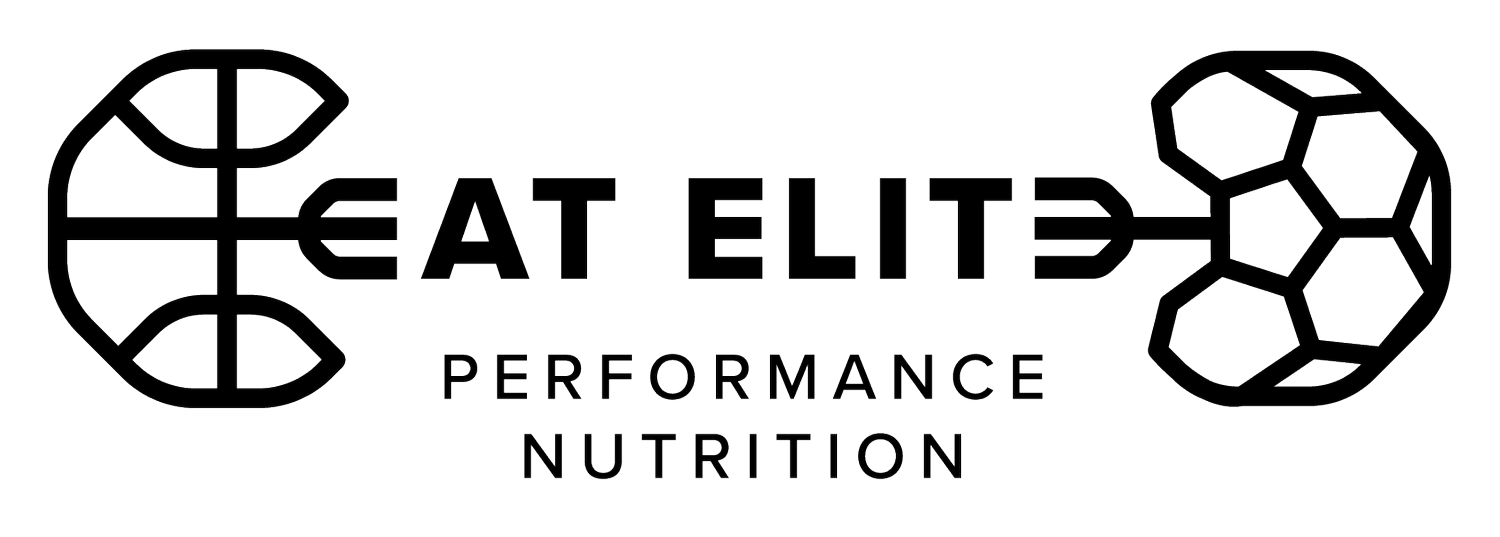What is creatine?
I am guessing you have heard of creatine on social media or from your friend at the gym. But maybe you are still confused as to what creatine is or if you should be taking it. Let me help…
What is it? Creatine is a derivative of amino acids that is stored in our muscles. We primarily get creatine in our diets from animal sources, especially meat. There are decades of research around creatine and it is supported by many sport nutrition entities.
How does it work? Creatine is a source of energy for quick-burst and short movements, like in a 100-m sprint, lifting weights, or make a v-cut on the basketball court.
So, what does it do? I tell athletes to think of creatine as the “one more rep” supplement because having lots of creatine stored in your muscles means you can create more energy for these quick movements.
Any other benefits? Yep! In addition to improved recovery from exercise, creatine can improve hydration because it pulls water into the muscle. There has also been research to support creatine supplementation for brain health, cognitive function, and even concussion recovery. In general, it’s viewed to be neuroprotective because the brain also uses creatine as an energy source.
HOW TO SUPPLEMENT WITH CREATINE
You need to saturate the muscles with creatine before the true benefits kick in. This can be done in either a quick LOADING phase or slowly via MAINTENANCE. In a LOADING phase, you will take a higher dose every day for 7 days, then decrease to a MAINTENANCE dose.
Dosage: 30g per day in a LOADING phase, 5g per day for MAINTENANCE
Type: creatine monohydrate ONLY (any other form is not worth the money)
Time: any time of day, just be consistent. 30-60 mins before exercise would be ideal, but that is not entirely necessary
Side effects: because creatine helps the muscles pull in water, doing a LOADING phase typically leads to a 2-3lb. water-weight gain. A MAINTENANCE phase does not have this effect.
If you want to try it out, I recommend Designs for Sport Creatine Monohydrate. Use my code ELITE10 for a 10% discount.
FAQs:
Should I cycle on/off creatine? There is some research showing there might be a benefit to cycling creating, but nothing definitive at this time. I recommend you take it daily.
Is creatine a steroid? No, creatine is not a steroid.
Does creatine cause baldness? No, creatine will not make you go bald.
Does creatine supplementation harm the kidneys? No, creatine does not hurt your kidneys.
References used throughout this blog:
Kreider et al. JISSN. 2017. DOI 10.1186/s12970-017-0173-z
Antonio et al. JISSN. 2021. https://doi.org/10.1186/s12970-021-00412-w
Prokopidis et al. Nutrition Reviews. 2022. https://doi.org/10.1093/nutrit/nuac064
Ribiero et al. Nutrients. 2021. https://doi.org/10.3390/nu13082844
Please note…
These products are dietary supplements and are not intended to diagnose, treat cure or prevent any disease. Reviews are not intended as a substitute for appropriate medical care or the advice of a physician or another medical professional.
Additionally, in compliance with the FTC guidelines, please assume the following about links and posts on this site:
The links on this page are affiliate links of which I receive a small commission from sales of certain items, but your price does not change. Sometimes, if a special code is listed, you can even get a discount!
I personally vet each and every product and assure you that everything linked is third-party tested. My first priority is providing valuable information and resources to help you optimize your life, health, and performance, so I will only ever link to products or resources (affiliate or otherwise) that fit within this purpose.

